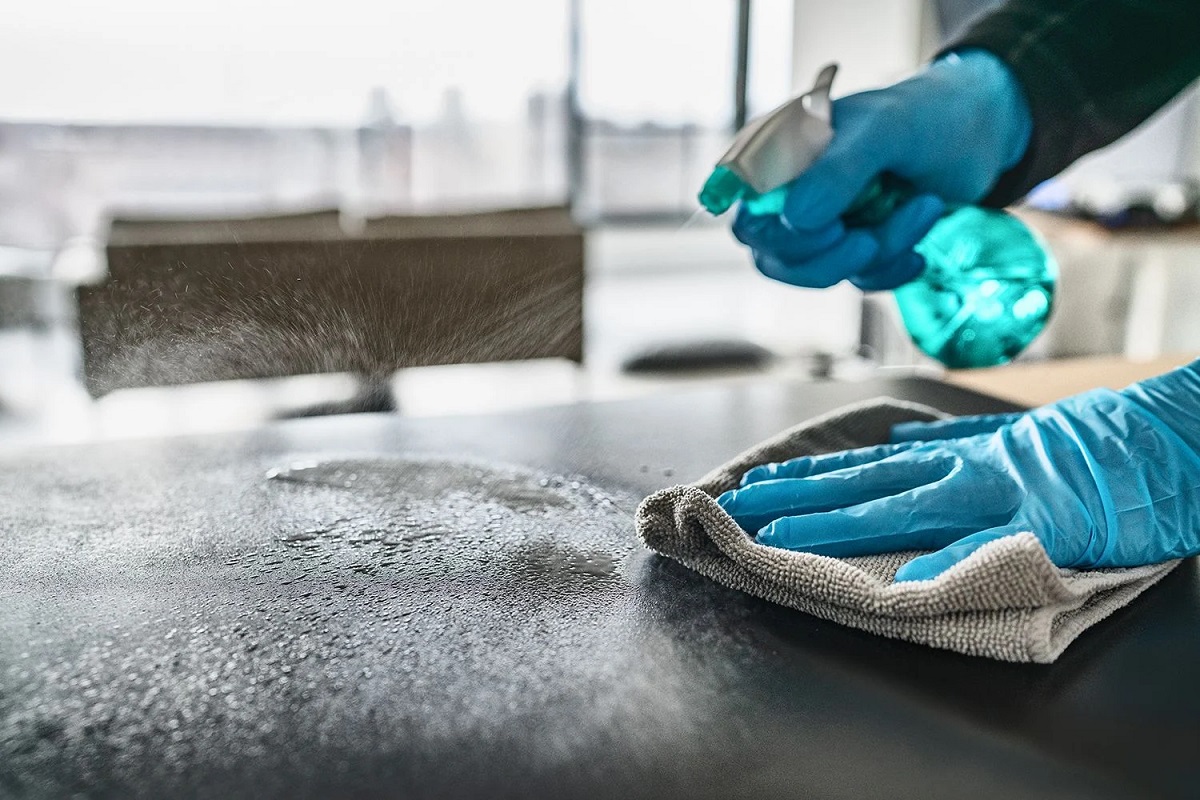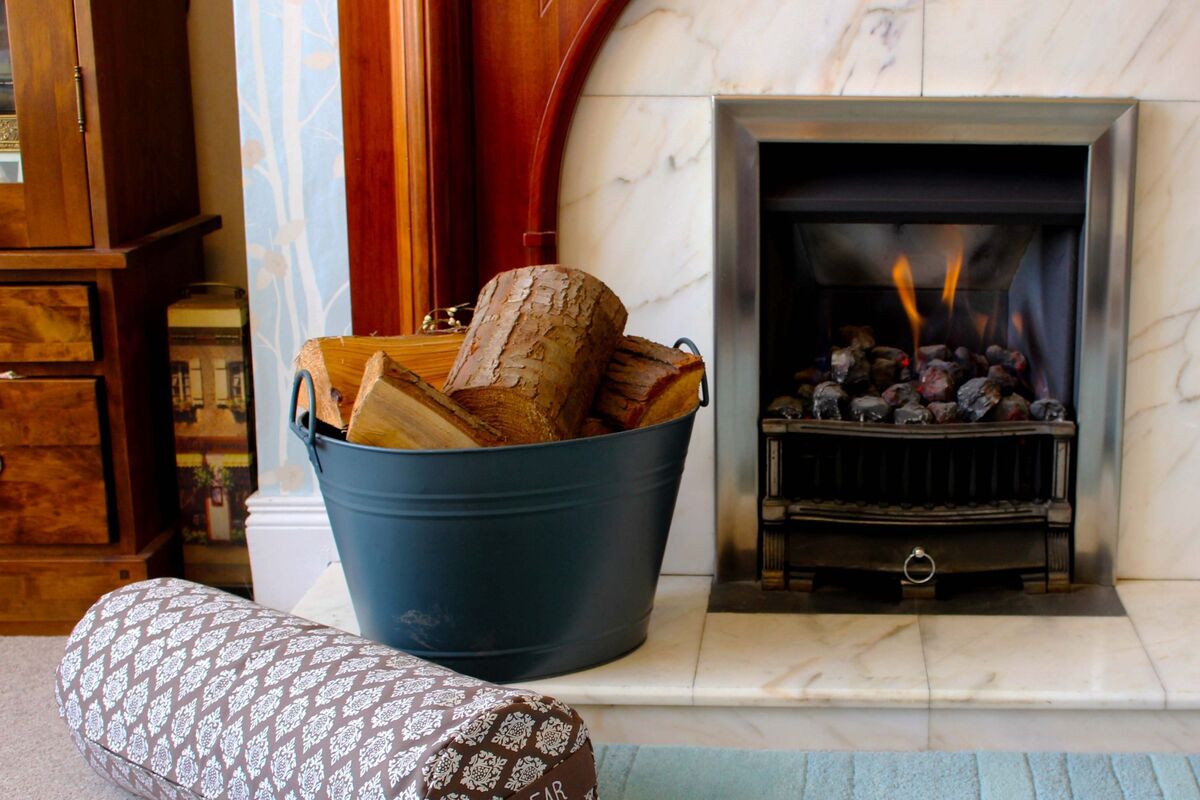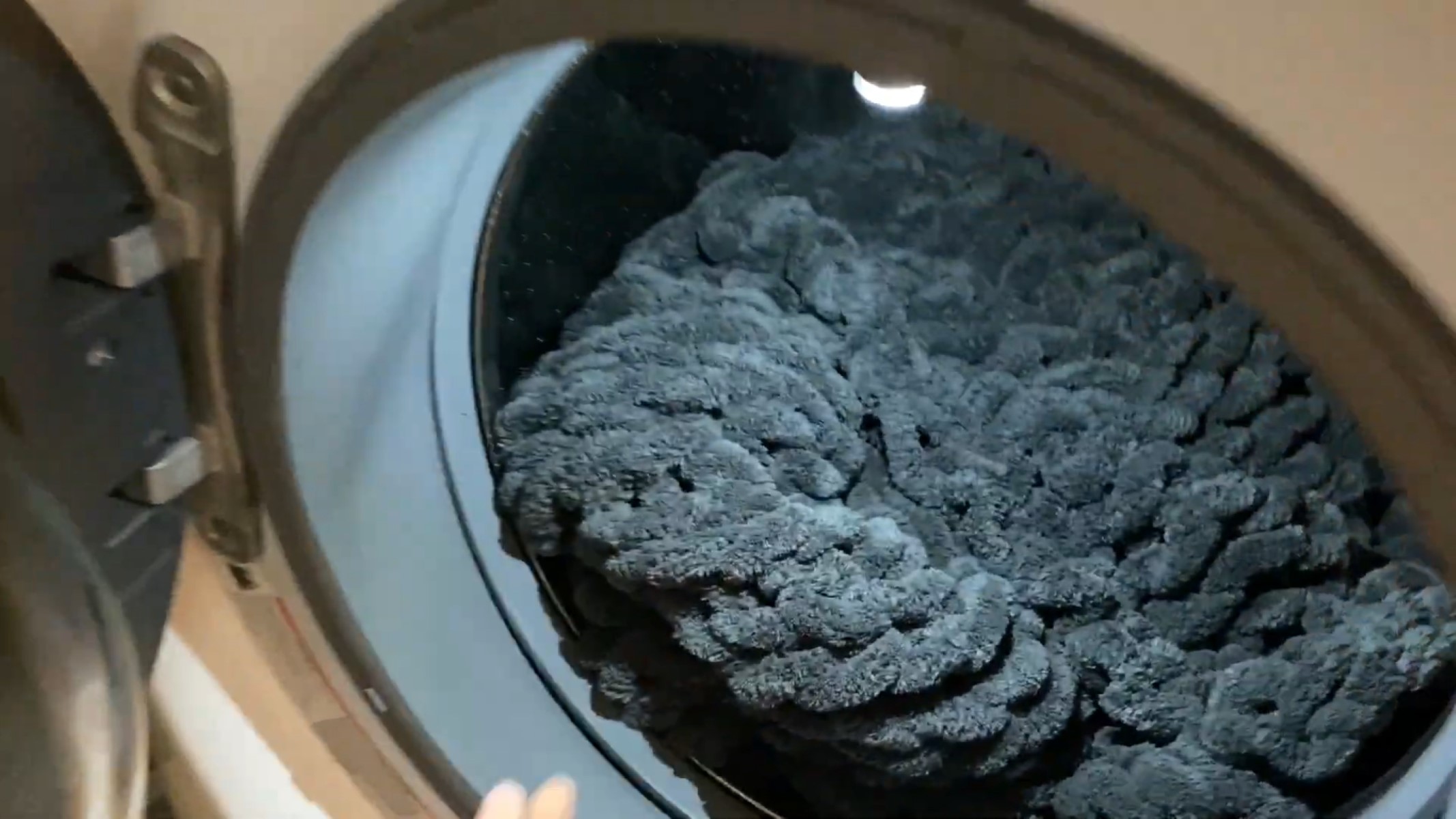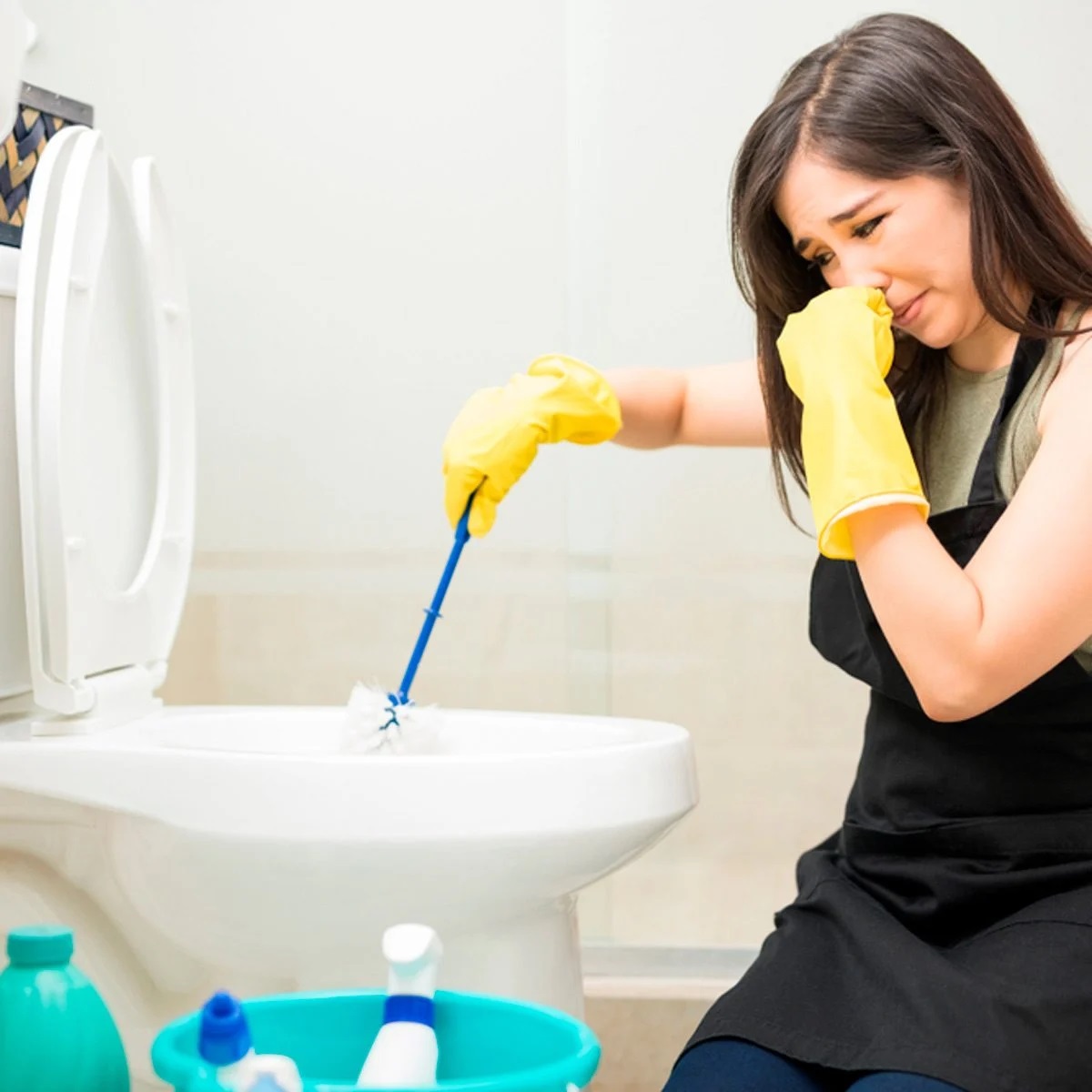Home>Interior Design>Why Does My House Smell Musty? And What To Do To Fix It


Interior Design
Why Does My House Smell Musty? And What To Do To Fix It
Modified: January 23, 2024
Discover the reasons behind the musty smell in your house and learn effective interior design tips to eliminate it. Fix your home's odor with our expert advice on interior design.
(Many of the links in this article redirect to a specific reviewed product. Your purchase of these products through affiliate links helps to generate commission for Storables.com, at no extra cost. Learn more)
Introduction:
Why does my house smell musty? And what to do to fix it
Have you ever walked into your home and been greeted by a strong, unpleasant odor? If that smell is musty, it may indicate a potential issue that needs to be addressed. Understanding the cause of a musty smell in your house is essential in order to effectively eliminate it and prevent it from recurring.
A musty odor is often associated with dampness and mold growth. It can be particularly bothersome, not only because of the unpleasant scent, but also because it may be an indication of underlying issues such as water damage or poor ventilation. Ignoring a musty smell can lead to further problems, including respiratory issues and damage to your home”s structure.
In this article, we will explore the common causes of a musty smell in houses, how to identify the source of the odor, and provide practical tips for preventing and eliminating it. Additionally, we will discuss when it may be necessary to hire professionals for mold remediation.
Understanding the Musty Odor:
The term “musty” describes a stale, earthy smell often associated with a moist environment. It is often likened to the smell of damp basements or old books. This odor is usually caused by the growth of mold or mildew, which thrive in damp conditions.
Mold and mildew produce organic compounds called microbial volatile organic compounds (MVOCs) as they grow. It is these compounds that give off the characteristic musty odor. The presence of mold or mildew in your home can be an indication of excess moisture, which may be caused by factors such as water leaks, high humidity levels, inadequate ventilation, or poor insulation.
Common Causes of Musty Smell in Houses:
There are several common causes that can lead to a musty smell in your house. By understanding these causes, you can take appropriate steps to address them and prevent the odor from lingering.
1. Water Leaks: One common cause of musty odors is water leaks. Whether it’s a leaking roof, plumbing leak, or even a small drip from a pipe, the presence of moisture can create an ideal environment for mold and mildew growth.
2. High Humidity: Humidity levels above 50% can promote the growth of mold and mildew. Areas such as bathrooms, basements, and kitchens are particularly susceptible to high humidity, especially if they lack proper ventilation.
3. Poor Ventilation: Inadequate ventilation can trap moisture inside your home, leading to a musty smell. This is especially true in areas that naturally produce moisture, such as bathrooms and kitchens.
4. Damp or Wet Materials: If you have stored damp or wet items in your home, such as wet carpets, clothing, or furniture, they can contribute to a musty odor. It’s crucial to properly dry these materials to prevent the growth of mold or mildew.
Identifying the Source of Musty Smell:
To effectively eliminate a musty odor, it’s essential to identify the source. This allows you to address the underlying issue and prevent the odor from returning. Here are some steps you can take to identify the source of the musty smell:
1. Check for Water Leaks: Inspect areas where water is commonly used or runs through, such as bathrooms, kitchens, and laundry rooms. Look for signs of water damage, such as discoloration, dampness, or peeling paint.
2. Assess Humidity Levels: Measure the humidity levels in your home using a hygrometer. Ideally, humidity levels should be between 30% and 50%. If they are consistently above 50%, it indicates high humidity and a potential cause of the musty odor.
3. Inspect Ventilation Systems: Check ventilation systems, such as bathroom or kitchen exhaust fans, to ensure they are working correctly. Clean or replace filters regularly to promote proper airflow and reduce moisture buildup.
4. Examine Storage Areas: If you have stored items in basements, attics, or closets, inspect them for signs of mold or mildew growth. Look for visual indicators such as discoloration, fuzzy patches, or a musty smell.
By carefully inspecting your home, you can pinpoint the source of the musty smell and take appropriate steps to address the underlying issue. In the next section, we will explore tips for preventing and eliminating musty odors to improve the air quality of your home.Understanding the Musty Odor:
Key Takeaways:
- Don’t ignore musty odors in your home – they could indicate underlying issues such as water damage and mold growth. Take proactive steps to identify and address the root cause to maintain a healthy living environment.
- Prevent musty odors by controlling moisture, improving ventilation, and promptly addressing any water leaks. Consider professional mold remediation for extensive mold growth or persistent health concerns.
Read more: Why Does My Laundry Room Smell Musty
What causes a musty odor?
The musty odor that is often associated with a damp environment or old books can be attributed to the presence of mold or mildew. Mold and mildew are types of fungi that thrive in moist conditions. When they grow, they release microbial volatile organic compounds (MVOCs), which emit the characteristic musty smell.
What factors contribute to the growth of mold and mildew?
Several factors promote the growth of mold and mildew, leading to a musty odor in your home. Understanding these factors can help you prevent and eliminate the unpleasant smell:
1. Excess Moisture: Moisture is critical for mold and mildew growth. If there is a source of excessive moisture in your home, such as water leaks, high humidity, or condensation, it creates an ideal environment for their growth.
2. Poor Ventilation: Inadequate ventilation prevents the proper circulation of air and can trap moisture indoors. This can be particularly problematic in areas such as bathrooms, kitchens, and basements, where humidity levels are naturally higher.
3. Lack of Sunlight: Mold and mildew thrive in dark environments. Areas of your home that receive little to no sunlight, such as basements or closets, are more susceptible to mold and mildew growth.
4. Organic Materials: Mold and mildew feed on organic materials like wood, paper, and fabric. If these materials become damp or wet, mold and mildew can colonize them, leading to a musty odor.
5. Poor Insulation: Inadequate insulation can contribute to moisture issues in your home. When warm air collides with cold surfaces, condensation can occur, leading to dampness and mold growth.
What health risks are associated with a musty odor?
Apart from being unpleasant, a musty odor can have health implications for you and your family. The presence of mold and mildew can release airborne spores that can cause respiratory problems, especially for individuals with allergies or asthma. Prolonged exposure to mold spores can lead to symptoms such as coughing, sneezing, throat irritation, and nasal congestion.
In some cases, certain types of mold can produce mycotoxins, which are toxic substances that can cause more severe health issues. These can include headaches, dizziness, fatigue, and even neurological problems.
If you or your loved ones experience persistent symptoms that seem to be related to mold exposure, it is advisable to consult with a medical professional.
How can you differentiate a musty odor from other smells?
While a musty smell is distinct, it can sometimes be confused with other odors. It is essential to note the difference to identify and address the underlying issue effectively. Here are a few ways to differentiate a musty odor from other smells:
1. Dampness: A musty smell is often accompanied by a sense of dampness or moisture in the air. If you feel a clammy or sticky sensation, it indicates the presence of excess moisture.
2. Earthy or Stale: The musty odor is often described as earthy or stale, similar to the smell of wet soil or a closed room that hasn’t been aired out for a long time.
3. Lingering Odor: A musty smell tends to linger and can be detected even after thorough cleaning or airing out the room.
By understanding the causes of a musty odor, the associated health risks, and how to differentiate it from other smells, you can take appropriate steps to address the issue and maintain a fresh and healthy indoor environment. In the following sections, we will explore practical tips for preventing and eliminating musty odors in your home.Common Causes of Musty Smell in Houses:
Read more: Why Does My Air Conditioner Smell Musty
Water Leaks:
Water leaks are a common cause of musty odors in homes. Whether it’s a leaking roof, plumbing leak, or even a small drip from a pipe, the presence of moisture can create an ideal environment for mold and mildew growth. It’s essential to promptly address and repair water leaks to prevent further damage and the development of a musty smell.
High Humidity:
High humidity levels can lead to a musty smell in your home. Humidity levels above 50% provide the perfect conditions for mold and mildew to thrive. Areas such as bathrooms, kitchens, and basements are particularly susceptible to high humidity, especially if they lack proper ventilation. Investing in a dehumidifier can help regulate humidity levels and reduce the likelihood of a musty smell.
Poor Ventilation:
Inadequate ventilation can trap moisture inside your home, contributing to a musty odor. Without proper airflow, damp air lingers, providing an ideal breeding ground for mold and mildew. This is especially true in areas that naturally produce moisture, such as bathrooms and kitchens. Installing exhaust fans, opening windows, and using air purifiers can help improve ventilation and reduce the musty smell.
Damp or Wet Materials:
If you have stored damp or wet items in your home, such as wet carpets, clothing, or furniture, they can contribute to a musty odor. These items provide a favorable environment for mold and mildew to grow and thrive. Properly drying and airing out these materials is crucial to prevent the development of a musty smell.
Read more: Why Does My Air Conditioning Smell Musty
Poor Insulation:
Insufficient insulation can lead to condensation and moisture issues in your home. When warm air comes into contact with cold surfaces, condensation can form, resulting in dampness and eventually mold and mildew growth. It’s important to ensure that your home is properly insulated to prevent moisture buildup and the accompanying musty smell.
Damp Basements and Crawl Spaces:
Basements and crawl spaces are prone to dampness due to their underground location and lack of proper ventilation. This dampness can lead to the growth of mold and mildew, resulting in a musty odor. Waterproofing these areas, installing a dehumidifier, and ensuring adequate ventilation can help mitigate the musty smell.
Old or Neglected Homes:
Older homes or those that have been neglected for a long time are more likely to have musty smells. These homes may have hidden water damage, leaks, or poor ventilation systems that contribute to the development of mold and mildew. Conducting regular inspections, maintaining proper ventilation, and addressing any issues promptly can help prevent and eliminate musty smells in older or neglected homes.
By understanding these common causes of musty smells in houses, you can take proactive steps to prevent and eliminate them. Regular maintenance, prompt repairs, adequate ventilation, and moisture control are key to maintaining a fresh and healthy living environment. In the next section, we will discuss how to identify the source of a musty smell in your home.Identifying the Source of Musty Smell:
Why is it important to identify the source of the musty smell?
Before you can effectively eliminate a musty odor in your home, it is crucial to identify the source. By pinpointing the underlying cause, you can address the issue directly and prevent the smell from lingering or recurring. Here are some steps you can take to identify the source of the musty smell:
Read more: Why Does Basement Smell Musty
Inspect for Visible Signs:
Start by visually inspecting your home for any visible signs of water damage, mildew, or mold growth. Check areas where water is commonly used or runs through, such as bathrooms, kitchens, laundry rooms, and basements. Look for discoloration, dampness, peeling paint, or any other indications of moisture-related issues.
Check for Water Leaks:
Water leaks are often the primary cause of musty smells. Inspect all water sources in your home, including pipes, faucets, plumbing fixtures, and the roof. Look for any signs of leaks, such as dripping or pooling water, wet spots, or water stains. It’s crucial to address these leaks promptly to prevent further damage and mold growth.
Assess Humidity Levels:
High humidity can contribute to the development of a musty smell. Measure the humidity levels in your home using a hygrometer, which is readily available at home improvement stores. Ideally, humidity levels should be between 30% and 50%. If the levels consistently exceed 50%, it indicates high humidity and a potential cause of the musty smell.
Inspect Ventilation Systems:
Inadequate ventilation can trap moisture inside your home, leading to a musty odor. Inspect your ventilation systems, such as bathroom or kitchen exhaust fans, to ensure they are working correctly. Clean or replace filters regularly to promote proper airflow and reduce moisture buildup.
Read more: Why Does AC Smell Musty
Examine Storage Areas:
If you have stored items in basements, attics, or closets, inspect them for signs of mold or mildew growth. Look for visual indicators such as discoloration, fuzzy patches, or a musty smell. Pay close attention to stored organic materials like paper, books, or clothing, as they are more susceptible to mold and mildew growth.
Check for any water leaks or moisture issues in your house, as these can cause a musty smell. Ensure good ventilation, use a dehumidifier, and clean regularly to prevent mold and mildew growth.
Call for Professional Assistance:
If you are unable to identify the source of the musty smell or suspect a hidden issue, it may be necessary to call for professional assistance. Certified home inspectors or mold remediation specialists have the expertise and tools to conduct a thorough inspection of your home. They can help identify hidden moisture sources, perform mold testing if needed, and provide recommendations for remediation.
By carefully inspecting your home and identifying the source of the musty smell, you can take necessary steps to address the underlying issue. Whether it’s fixing water leaks, improving ventilation, or removing mold and mildew, addressing the root cause is essential to eliminate the musty smell and maintain a healthy living environment. In the next section, we will explore practical tips for preventing and eliminating musty odors in your home.Tips for Preventing and Eliminating Musty Odors:
Control Moisture:
Moisture control is crucial in preventing and eliminating musty odors. Here are some tips to keep moisture at bay:
– Fix any water leaks promptly. Inspect your home regularly for leaks in plumbing systems, roofs, and windows.
– Ensure proper drainage around your home’s foundation to prevent water from seeping into basements or crawl spaces.
– Use dehumidifiers in areas prone to high humidity, such as basements, bathrooms, and laundry rooms.
– Open windows and use exhaust fans in kitchens and bathrooms to remove excess moisture.
– Use waterproof covers for mattresses and pillows to prevent moisture buildup.
– Hang wet clothes and towels in well-ventilated areas or use a clothesline outdoors.
Improve Ventilation:
Adequate ventilation helps to reduce moisture and prevent the accumulation of musty odors. Consider the following:
– Install exhaust fans in bathrooms and kitchen areas to remove steam and humid air.
– Use ceiling fans or portable fans to improve air circulation in rooms.
– Open windows regularly to allow fresh air to flow into your home.
– Ensure that air vents and ducts are clear and not blocked by furniture or other objects.
Clean and Dry Properly:
Regular cleaning and proper drying of surfaces and belongings can prevent the growth of mold and mildew. Follow these guidelines:
– Clean and dry bathrooms and shower areas regularly, paying attention to tiles, grout, and shower curtains.
– Use mold and mildew resistant cleaning products to remove any existing spores.
– Ensure that carpets, upholstery, and curtains are cleaned and dried thoroughly to prevent moisture buildup.
– Wipe down surfaces prone to moisture, such as window sills and condensation-prone areas.
– Dry wet clothes, towels, and other items promptly to prevent mold growth.
Inspect and Maintain Your Home:
Regular inspections and maintenance can help detect and address any potential issues before they worsen. Consider the following:
– Check your roof for any signs of leaks or damage and repair them promptly.
– Inspect and clean gutters and downspouts to ensure proper drainage.
– Monitor and maintain proper grading around your home to direct water away from the foundation.
– Inspect and clean air conditioning units and dehumidifiers regularly to ensure optimal performance.
– Keep indoor plants well-maintained and monitor for any signs of excess moisture or mold growth.
Keep Clutter at Bay:
Clutter can obstruct airflow and create pockets of moisture, leading to musty odors. Keep your living space organized and clutter-free:
– Regularly declutter and remove any unnecessary items that can trap moisture.
– Ensure proper ventilation in storage areas, such as closets, by leaving space between items.
– Avoid storing damp or wet items in confined spaces to prevent mold growth.
Use Natural Remedies:
Natural remedies can help eliminate musty odors and freshen up your home:
– Place bowls of activated charcoal or baking soda in musty-smelling areas to absorb odors.
– Use vinegar or hydrogen peroxide solutions to clean surfaces prone to mold and mildew growth.
– Place natural air purifiers, such as bamboo charcoal or essential oil diffusers, in rooms to improve air quality.
By implementing these preventive measures and eliminating musty odors, you can create a clean and fresh living environment. However, if you suspect a persistent mold problem or cannot eliminate the musty smell on your own, it may be necessary to seek professional assistance for mold remediation. Taking proactive steps to prevent musty odors will help ensure a healthy and pleasant atmosphere in your home. In the following section, we will discuss specific tips for removing musty odors from different areas in the house.Removing Musty Odor from Specific Areas of the House:
Read more: Why Does My Duvet Smell
Basements and Crawl Spaces:
– Ensure proper ventilation by installing exhaust fans or dehumidifiers.
– Use a basement waterproofing system or seal any cracks and gaps to prevent moisture infiltration.
– Clean and dry any visible mold or mildew growth using a mixture of water and detergent.
– Use a HEPA-filtered air purifier to remove airborne mold spores.
– Consider using a basement deodorizer specifically designed to tackle musty odors.
Bathrooms:
– Regularly clean and dry bathroom surfaces, including tiles, grout, and shower curtains.
– Use mold and mildew resistant cleaning products to remove existing spores.
– Ensure proper ventilation by using exhaust fans or opening windows during and after showering.
– Check and repair any leaks in faucets, pipes, or fixtures promptly.
– Consider using a bathroom dehumidifier to control humidity levels.
Kitchens:
– Keep the kitchen clean and dry, paying attention to countertops, sinks, and appliances.
– Use exhaust fans or open windows while cooking to reduce moisture and odors.
– Regularly clean and inspect the refrigerator for any food spills or leaks.
– Empty and clean the garbage regularly to prevent the buildup of mold and food odors.
– Consider using natural odor absorbers, such as coffee grounds or citrus peels.
Closets:
– Remove any damp or wet items from the closet and dry them thoroughly.
– Increase airflow in the closet by leaving space between clothes and using closet organizers.
– Clean the closet surfaces using a mixture of vinegar and water to remove any mold or mildew.
– Place natural deodorizers, such as activated charcoal or sachets filled with baking soda, in the closet.
– Consider using moisture absorbers, such as silica gel packets, to prevent moisture buildup.
Read more: Why Does My Blender Smell
Carpeted Areas:
– Vacuum carpets regularly to remove dust, dirt, and any trapped moisture.
– Use carpet cleaners specifically designed to eliminate odors and remove stains.
– Dry wet carpets promptly by using fans or dehumidifiers.
– Consider steam cleaning carpets to remove deeply embedded stains and odors.
– If the musty smell persists, professional carpet cleaning or replacement may be necessary.
Upholstered Furniture:
– Vacuum upholstered furniture thoroughly to remove any dust, debris, and trapped odors.
– Depending on the fabric, use appropriate cleaning methods, such as steam cleaning or spot cleaning.
– If possible, place the furniture in a well-ventilated area to allow proper airflow and drying.
– Use odor absorbers, such as baking soda or fabric fresheners, to eliminate lingering smells.
– Consider professional upholstery cleaning for deep cleaning and odor removal.
Remember, prevention is key to avoiding musty odors in specific areas of the house. Regular cleaning, proper ventilation, and moisture control will help keep your home smelling fresh. However, in cases where the musty odor persists or is associated with extensive mold growth, it is advisable to seek professional assistance for mold remediation. By following these tips, you can effectively remove musty odors from different areas of your house and enjoy a clean and pleasant living environment. In the next section, we will discuss when it may be necessary to hire professionals for mold remediation.Hiring Professionals for Mold Remediation:
When is professional mold remediation necessary?
While minor mold issues can often be addressed through DIY methods, there are situations where it is necessary to hire professionals for mold remediation. Consider the following scenarios:
– Extensive Mold Growth: If you notice widespread mold growth covering a large area (typically larger than 10 square feet), it’s best to call in professionals. This is especially true for toxic mold species, such as black mold (Stachybotrys chartarum).
– Hidden Mold: Mold can grow behind walls, above ceilings, or in inaccessible areas, making it difficult to detect and address without professional expertise and equipment. If you suspect hidden mold in your home, it’s advisable to hire professionals to conduct a thorough inspection.
– Chronic Water Damage: If your home has a history of chronic water damage, such as recurring leaks or flooding, it increases the risk of mold growth. Professional mold remediation can help address underlying issues and prevent future mold problems.
– Health Issues: If you or your family members experience persistent health issues, such as allergies, respiratory problems, or recurring symptoms associated with mold exposure, it’s essential to consult professionals. They can assess the situation, identify potential mold sources, and provide effective remediation.
The benefits of professional mold remediation:
Hiring professionals for mold remediation offers several benefits:
– Expertise and Training: Professional mold remediation companies have trained and experienced technicians who understand the complexities of mold growth, its identification, and proper removal techniques. They know how to address different types of mold accurately and efficiently.
– Advanced Equipment: Professionals have access to specialized equipment and tools necessary for comprehensive mold remediation. This includes high-powered air scrubbers, negative air machines, moisture meters, and protective gear.
– Containment and Safety: Mold removal can release mold spores into the air, potentially causing health hazards if not contained properly. Professional remediation companies follow industry guidelines to ensure proper containment and safe removal, minimizing the risk of cross-contamination.
– Thorough Inspection: Professionals don’t just address the visible mold; they conduct a thorough inspection to identify the source of the problem and ensure complete removal. They take necessary steps to prevent mold recurrence, such as addressing the root cause of excess moisture.
– Mold Prevention: Professionals not only remove existing mold but also offer recommendations for preventing future mold growth. They can provide insights on improving ventilation, reducing moisture, and maintaining a healthy indoor environment.
Read more: Why Does My HVAC Smell
Choosing the right mold remediation professionals:
When hiring professionals for mold remediation, consider the following:
– Credentials and Certifications: Ensure the company holds the necessary licenses and certifications in mold remediation. Look for certifications such as IICRC (Institute of Inspection, Cleaning and Restoration Certification) and NORMI (National Organization of Remediators and Mold Inspectors).
– Experience and Reputation: Research the company’s experience in the industry and check for customer reviews and testimonials. A reputable company should have a track record of successful mold remediation projects.
– Insurance and Guarantees: Verify that the company carries appropriate liability insurance and provides guarantees for their work. This ensures that you are protected in case of any issues during the remediation process.
– Detailed Inspection and Plan: A professional company should conduct a detailed inspection of your property, provide a clear plan of action, and explain the steps they will take for mold removal.
– Written Estimates: Request written estimates from multiple companies, detailing the scope of work, timeline, and associated costs. This allows you to compare and make an informed decision.
Overall, professional mold remediation offers several advantages in effectively addressing mold issues in your home. Their expertise, advanced equipment, and dedication to safety can help ensure a thorough and successful remediation process. If you are dealing with extensive mold growth or hidden mold, or if you have health concerns related to mold exposure, it is wise to consult and hire professionals for mold remediation. In the final section, we will conclude the article with a summary of the key points discussed.Conclusion:
Keeping your home fresh and mold-free
A musty odor in your home can be indicative of underlying issues such as water damage, high humidity, poor ventilation, or mold growth. Understanding the causes of musty smells and taking proactive measures to prevent and eliminate them is crucial for maintaining a healthy and pleasant living environment.
Identifying the source of the musty smell is the first step in addressing the issue. Regular inspections, checking for water leaks, monitoring humidity levels, and examining ventilation systems can help pinpoint the root cause. Once identified, appropriate actions can be taken to rectify the problem.
Preventing and eliminating musty odors requires controlling moisture, improving ventilation, cleaning and drying surfaces and belongings promptly, and maintaining a clutter-free living space. By implementing these preventive measures, you can minimize the risk of mold growth and the accompanying musty odor.
In some cases, hiring professionals for mold remediation becomes necessary. If you encounter extensive mold growth, hidden mold, chronic water damage, or persistent health issues, seeking professional assistance ensures a thorough inspection, safe removal of mold, and guidance on preventing future problems.
Professional remediation offers several benefits, including expertise, specialized equipment, safe removal practices, and comprehensive inspections. By choosing the right mold remediation professionals, you can trust that the problem will be effectively addressed, providing you with peace of mind and a healthy living environment.
Taking a proactive approach to prevent musty odors and promptly addressing any concerns ensures that your home remains fresh, clean, and mold-free. Regular maintenance, proper ventilation, and moisture control are essential in creating a comfortable and healthy space for you and your family.
Remember, mold growth and musty odors should never be ignored, as they can lead to health issues and further damage to your home. By understanding the causes and implementing the tips and strategies discussed in this article, you can take control of the musty odor in your house and create a space that is fresh, inviting, and free from unpleasant smells.
Frequently Asked Questions about Why Does My House Smell Musty? And What To Do To Fix It
Was this page helpful?
At Storables.com, we guarantee accurate and reliable information. Our content, validated by Expert Board Contributors, is crafted following stringent Editorial Policies. We're committed to providing you with well-researched, expert-backed insights for all your informational needs.








0 thoughts on “Why Does My House Smell Musty? And What To Do To Fix It”